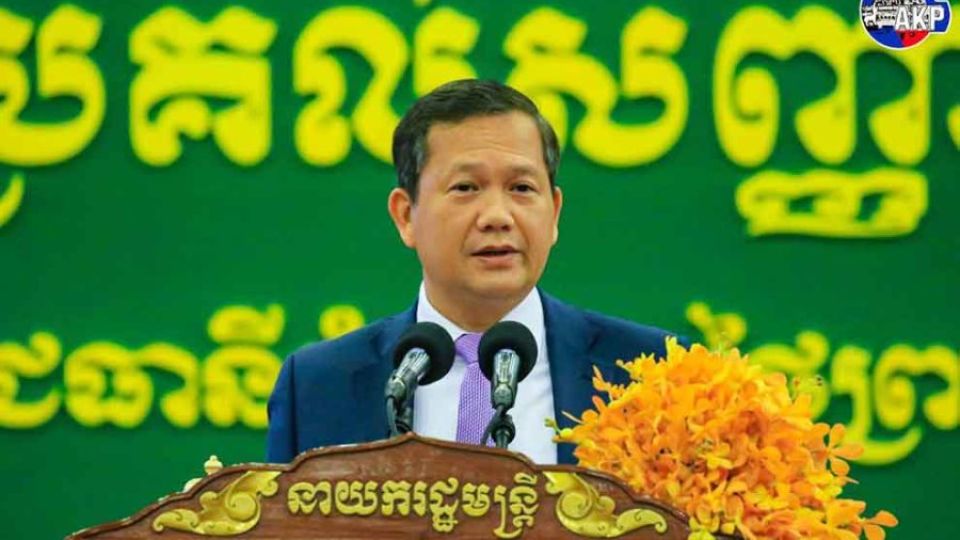November 22, 2024
PHNOM PENH – Prime Minister Hun Manet has addressed the government’s decision to remain silent on the sovereignty dispute over Koh Kut, citing ongoing maritime border negotiations with Thailand that have yet to yield an agreement. Both nations currently claim the island as part of their territory.
The explanation came in response to criticism from opposition groups and some members of the public who accused the government of failing to respond to Thailand’s claims over the island.
Manet clarified that these claims originated from Thailand’s opposition party, not its government.
Speaking at a graduation ceremony for students of the Royal University of Phnom Penh on November 21, Manet stressed that issues involving national sovereignty and territorial integrity must be handled with care.
“Some say the government is as silent as a ‘horse thief’, unwilling to confront Thailand over such claims. They accuse my administration of losing Koh Kut and Cambodia’s maritime territory. They say the government should take the matter to the International Court of Justice [ICJ] and provide an explanation.
“Why is the government silent? The answer lies in two principles: political maturity and national responsibility. These principles guide the government’s silence because speaking out would not reflect maturity,” he said.
Manet elaborated on the concept of political maturity, emphasising the importance of formal negotiations between the two nations on border demarcation. He underscored that such sensitive issues should be addressed through official channels, not through social media or the press.
“The government doesn’t simply talk like analysts do,” he said. “When we speak, it carries weight. Should we interfere in another country’s affairs? They protect what they consider theirs. One side claims their land is lost; the other says it isn’t. Why should we bring fire unnecessarily into our home? Acting rashly could provoke unnecessary conflict,” he explained.
Manet highlighted that Cambodia and Thailand have established two commissions for border discussions: the Joint Border Commission (JBC), responsible for land border issues, and the Joint Technical Committee (JTC), which focuses on maritime boundaries.
“These are official mechanisms. The government works through them. Whatever they say [in Thailand] is their matter. If there are disputes, they should be resolved face-to-face to become official,” he explained.
Manet noted that border negotiations between the two countries have so far only addressed land boundaries. Agreements have been reached on 805 kilometres of the land border, covering 73 markers, with 42 finalised and 31 pending.
“We’ve identified the land boundary based on the 1907 French-Siam Treaty, covering 805 kilometres and 73 border markers. Negotiations have taken 18 years to finalise 42 markers, but the work continues down to every millimetre,” he said.
Regarding maritime boundaries, Manet stated, “Have we ever agreed on maritime borders? No. Negotiations have occurred many times without agreement. If there’s no agreement, what have we lost? Let me ask you this. Some say it’s treason or land loss. But without an agreement, how could we even file a case with the ICJ?”
He reaffirmed the government’s commitment to safeguarding Cambodia’s territorial integrity and sovereignty through peaceful mechanisms based on technical expertise.
He stressed that the Secretariat of Border Affairs is fully prepared for continued negotiations with Thailand on border matters.
Additionally, Manet mentioned that the country’s total land area could potentially be larger than the officially recognised 181,035 square kilometres.
He cited experimental GPS measurements conducted in 2012, suggesting it could extend to over 181,436 square kilometres.


